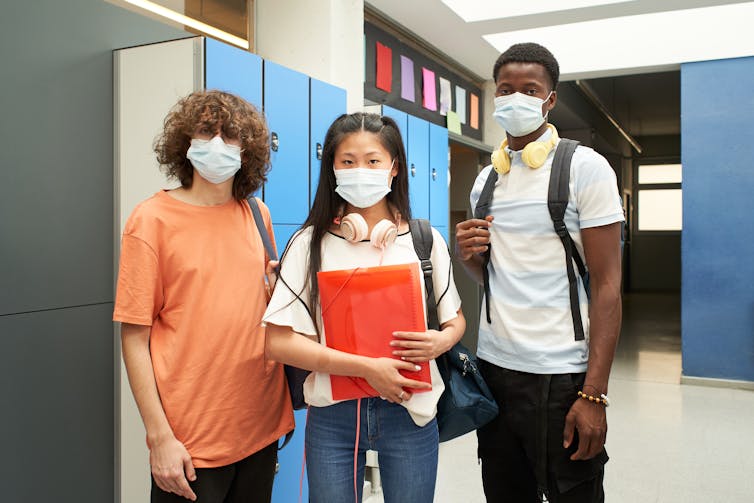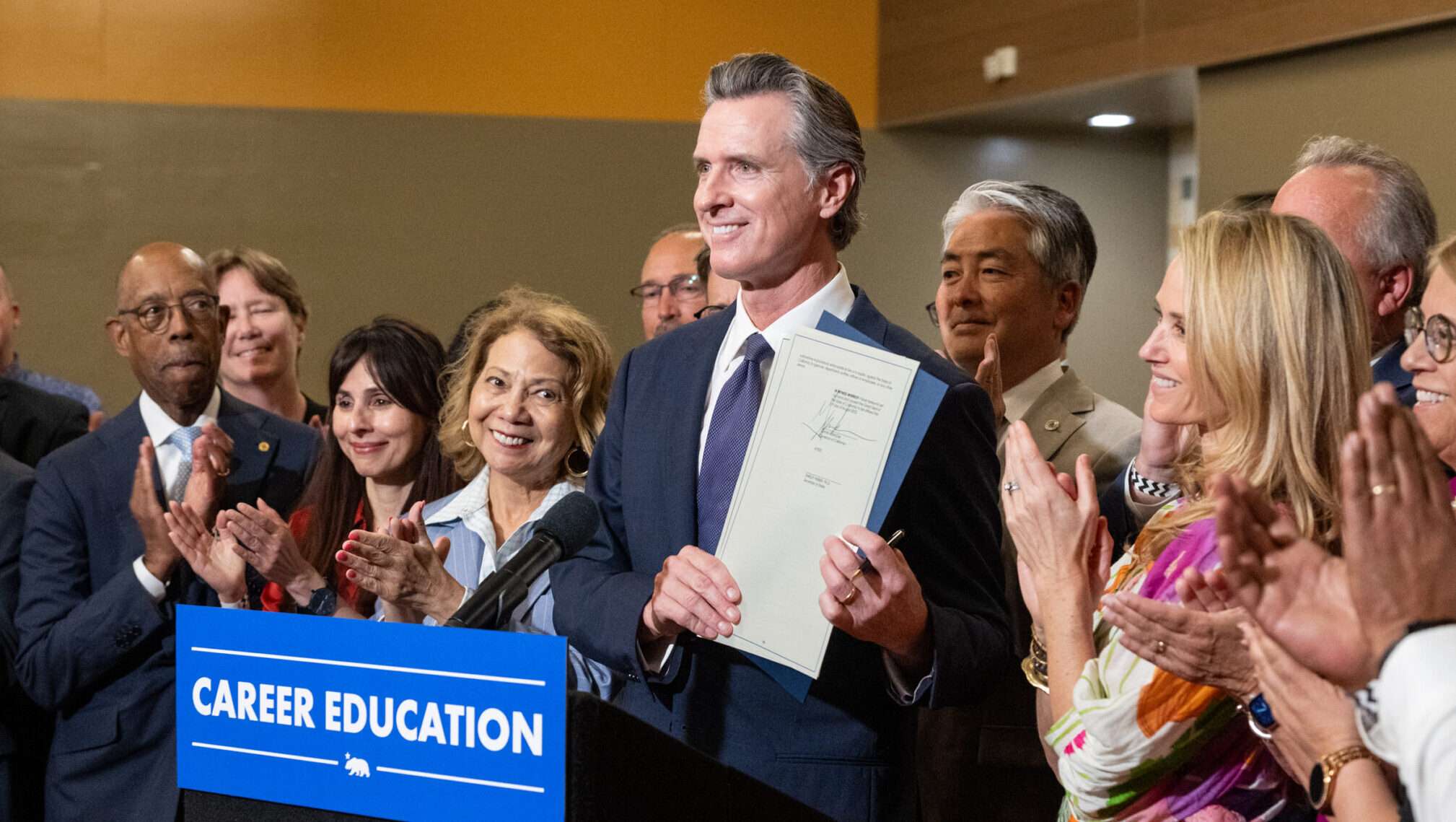In a pandemic, disregarding science influences all people. Citizenship instruction can assist be certain that isn’t going to materialize

Table of Contents
Because early 2020, our way of life has changed radically. COVID-19 has reworked how we analyze, find out and operate — even how we store, take in and acquire.
All over the pandemic, Canada has applied particular person and community-primarily based actions to shield its citizens. While most Canadians have trusted and listened to the researchers and public overall health gurus, far too several have dismissed the science — protesting mask donning, social distancing and vaccination.
These who have failed to comply with these protocols have extended the pandemic and place their fellow citizens at chance. This troubling problem demands notice and potential action, like addressing it by education.
Dependable citizenship and instruction
Liable citizenship is fundamental in a democratic culture — and with it comes the accountability to not engage in behaviour that endangers the wellness and perfectly-being of neighbours.
Pointed out professors of citizenship education, Joel Westheimer and Joseph Kahne, tie great citizenship to an lively democratic citizenry. They anxiety the great importance of training about adhering to the law and starting to be a individually responsible citizen, engaging in civic affairs and getting a participatory citizen, and demanding social inequities by becoming a justice-oriented citizen.
In new many years, as a end result of escalating global challenges — these types of as poverty, hunger, general public well being and local climate alter — the notion of liable citizenship has expanded to include things like world belonging and commitment.
International citizenship seeks to unite folks in and throughout nations around the world in typical lead to to bridge national divides to address seminal troubles struggling with the entire world. World citizenship in several methods seeks to fulfil the United Nations Sustainable Advancement Objectives created to confront pressing international challenges.
In universities, “world wide citizenship training” aims to present learners with the expertise, expertise and values to grow to be accountable citizens and master to tackle a assortment of generational problems. Universities in numerous nations around the world, including Canada, have commenced to identify the value of these educational aims. Many provinces, this kind of as Alberta, British Columbia, Manitoba, Nova Scotia, Ontario and Québec, have integrated global citizenship education and learning into their social scientific tests curricula in the earlier few decades.
Canadian intergovernmental bodies representing each provincial ministry of schooling, together with the Council of Ministers of Education and learning, Canada (CMEC), have emphasised the importance of world-wide citizenship instruction between other priorities. In its new Pan-Canadian Methods-Amount Framework on Worldwide Competencies, CMEC laid out six world competencies for students: global citizenship and sustainability essential wondering and problem fixing innovation, creative imagination and entrepreneurship mastering to study and to be self-informed and self-directed and collaboration.

THE CANADIAN Push/Graham Hughes
Thinking about put up-pandemic citizenship
Irrespective of these curricular developments, concerns that have arrive to light in the pandemic have revealed that the targets of global citizenship training must adapt.
These involve the disregard for public wellness protocols, the undermining of science, the spread of misinformation and the deficiency of worry for some others (specially for seniors, who are more probable to get really sick with COVID-19, and for people with fundamental health disorders).
Go through additional:
The urgent need for media literacy in an age of annihilation
It is significantly crucial that the upcoming technology of Canadian college students study how to navigate the several greater challenges of a submit-COVID-19 earth. Study from the Centre for Global Improvement noted that “the next pandemic could be a great deal sooner and more significant than we consider.”
In light-weight of the lessons of COVID-19, educational institutions throughout Canada ought to take into account providing a social experiments elective program that emphasizes write-up-pandemic values, together with dedication to community health and fitness, empathy and compassion, self-sacrifice and a co-operative spirit. This kind of a “post-pandemic citizenship” training could help get ready the future generation of Canadians to encourage the type of values at times lacking during the pandemic.
Health and fitness literacy, compassion
To start with, the study course really should contain difficulties of community overall health. It could, for illustration, use on the internet applications and platforms to educate students overall health literacy. As observed by the Environment Health and fitness Organization, overall health literacy indicates equipping people today to “play an active job in increasing their very own well being, interact correctly with local community motion for overall health, and thrust governments to meet up with their duties in addressing overall health and well being equity.”
Researchers from the Healthier Schools Lab at the College of Alberta famous that when schooling went on line owing to pandemic closures, provincial tips for at-household understanding did not involve a emphasis on well being and bodily instruction.
The course also could take a look at how other countries handled COVID-19 and prior epidemics or check with pupils to devise a system for combating the following pandemic.

(Shutterstock)
2nd, there really should be an emphasis on empathy and compassion, including its impression on favourable wellness results. In Canada, there have been attempts to impart empathy in the classroom and these initiatives should really continue. For case in point, Canadian educator Mary Gordon founded Roots of Empathy more than two many years ago. This method seeks to create students’ psychological and social competencies, resulting in less aggression and bullying.
Browse much more:
Strong associations support youngsters catch up just after 6 months of COVID-19 university closures
Self and community desire
At the identical time, the system should worry self-sacrifice. From examining scenario research on those people who disregarded community well being recommendations at the price of other folks, to debating scenarios wherever collective obligation ought to transcend specific self-interest, these lessons can be instructive.
For instance, the Winnipeg Faculty Division not too long ago unveiled an Education and learning for Sustainable Enhancement Program to train learners about collective responsibility in this sort of areas as human legal rights, environmental defense and reducing poverty.
Studies of collective duty should really consist of inspecting troubles all over fairness due to the disproportionate influence of the pandemic on marginalized communities in Canada.
Studying paperwork like the Canadian Constitution of Rights and Freedoms also can drop light-weight on the vital part of federal government mitigation strategies in supporting the collective dignity and rights of citizens.
Collective fantastic at stake
By embracing a co-operative spirit, pupils can take pleasure in community examples of group involvement, or contemplate when community and personal sector establishments need to collaborate for the fantastic of society at home and overseas.
For occasion, Toronto’s Bloorview College Authority, which presents college packages to kids with distinctive requirements who are going through intensive therapies, has partnered with UNICEF Canada to elevate money for vital university equipment for learners in Malawi. A Bloorview instructor famous that the challenge, identified as Little ones in Want of Desks, assists learners understand what it indicates to be world citizens in a pandemic. This is even as they offer with their personal studying disruptions because of to COVID-19 when running other difficulties.
This is just a starting up issue. About time, Canadian colleges will need to continue to re-take a look at and rewrite social studies curricula to groom the following era of citizens for a publish-pandemic environment. The collective superior and accountable citizenship are at stake.




